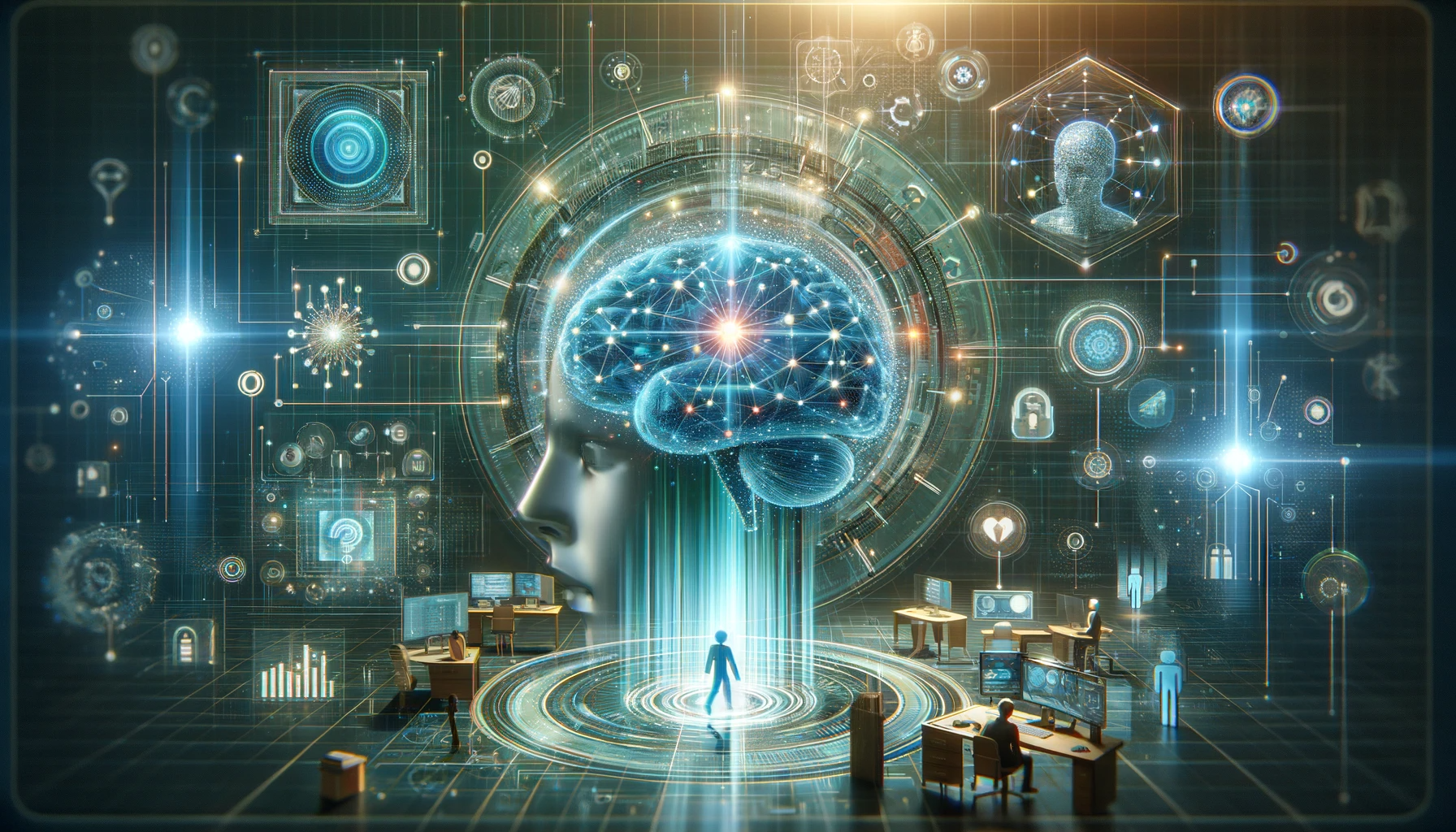
As a leading web design and development agency, we constantly explore innovative technologies that can revolutionize user experience. Among these, Artificial Intelligence (AI) stands out as a game-changer, particularly in personalizing user experiences. In this comprehensive blog post, we delve into the role of AI in reshaping how users interact with digital platforms, making experiences more personalized, engaging, and intuitive.
The Advent of AI in User Experience
AI has transformed numerous industries, and its impact on web design and user experience is profound. By leveraging AI, businesses can create more personalized, dynamic, and responsive web experiences. This not only enhances user satisfaction but also significantly boosts engagement and conversion rates.
Understanding AI-Powered Personalization
At its core, AI-powered personalization involves using AI algorithms to deliver tailored content, recommendations, and experiences to individual users. This personalization is based on user data, such as browsing history, preferences, and interactions. By analyzing this data, AI can predict user needs and preferences, offering a more relevant and customized experience.
How AI Enhances User Experience
Personalized Content Recommendations
One of the most visible applications of AI in user experience is personalized content recommendations. AI algorithms analyze user behavior to suggest relevant content, products, or services. This is evident on platforms like Netflix and Amazon, where AI-driven recommendations account for a significant portion of user engagement.
Dynamic User Interfaces
AI can dynamically adjust user interfaces to suit individual preferences. For example, it can change layout, color schemes, or even navigation based on the user’s past interactions and preferences, making the interface more intuitive and user-friendly.
Predictive User Behavior
AI’s ability to predict user behavior is a major asset. By anticipating what a user is likely to do next, AI can streamline user journeys, reduce friction, and present users with options even before they realize they need them.
Enhanced Customer Support with Chatbots
AI-powered chatbots have revolutionized customer support. These chatbots provide instant, 24/7 assistance, answering queries and guiding users through their online journey. They learn from each interaction, becoming more efficient in handling complex queries over time.
Voice-Activated Interfaces
With the rise of voice-activated devices like Amazon Alexa and Google Home, AI has made interfaces more accessible and interactive. These voice-activated systems use AI to understand and respond to user queries, providing a hands-free, conversational experience.
Improved Accessibility
AI also plays a crucial role in making web experiences more accessible to people with disabilities. For example, AI-powered tools can automatically generate alt text for images, helping visually impaired users understand visual content.
Challenges and Considerations in AI-Driven Personalization
While the benefits of AI in personalizing user experience are substantial, there are challenges and considerations that need to be addressed.
Data Privacy and Security
With AI relying heavily on user data, concerns around data privacy and security are paramount. It’s essential to adhere to data protection regulations and ensure that user data is handled ethically and securely.
Avoiding the ‘Creepy Factor’
There's a fine line between helpful personalization and invasion of privacy. Overly personalized experiences can sometimes feel invasive, leading to user discomfort. Striking the right balance is key to successful AI-driven personalization.
Bias in AI Algorithms
AI algorithms can inadvertently perpetuate biases if they are trained on biased data sets. It’s crucial to ensure that AI systems are trained on diverse and unbiased data to avoid discriminatory practices.
Technical Complexity and Resource Requirements
Implementing AI-driven personalization can be technically complex and resource-intensive. It requires expertise in AI and machine learning, as well as the infrastructure to support these technologies.
The Future of AI in Personalizing User Experience
Looking ahead, AI is set to become even more integral in personalizing user experiences. Innovations in AI and machine learning will enable more sophisticated and nuanced personalization, creating experiences that are truly tailored to individual users.
Advancements in Predictive Analytics
Future advancements in predictive analytics will allow AI to make even more accurate predictions about user preferences and behaviors, further enhancing the personalization of content and services.
Integration with Augmented Reality (AR) and Virtual Reality (VR)
The integration of AI with AR and VR technologies promises to create immersive and personalized digital experiences. These experiences could range from virtual shopping assistants to personalized virtual environments.
Ethical AI and User Trust
As AI becomes more prevalent, there will be a greater focus on ethical AI practices. Building user trust through transparent and ethical use of AI will be crucial in realizing its full potential in personalizing user experience.
Continuous Learning and Adaptation
AI systems will continue to evolve, learning continuously from user interactions and adapting to changes in user behavior and preferences. This will ensure that personalization remains relevant and effective over time.
Conclusion
In conclusion, the role of AI in personalizing user experience is both transformative and evolving. By harnessing the power of AI, businesses can create more engaging, intuitive, and satisfying online experiences for their users. While there are challenges to navigate, the potential of AI in revolutionizing user experience is immense.
As we continue to explore the capabilities of AI, it is clear that it will play a pivotal role in shaping the future of web design and development. From personalized content recommendations to dynamic user interfaces, AI-driven personalization is not just a trend; it’s the future of user experience. For businesses looking to stay ahead in the digital realm, embracing AI is not just an option; it’s a necessity.
